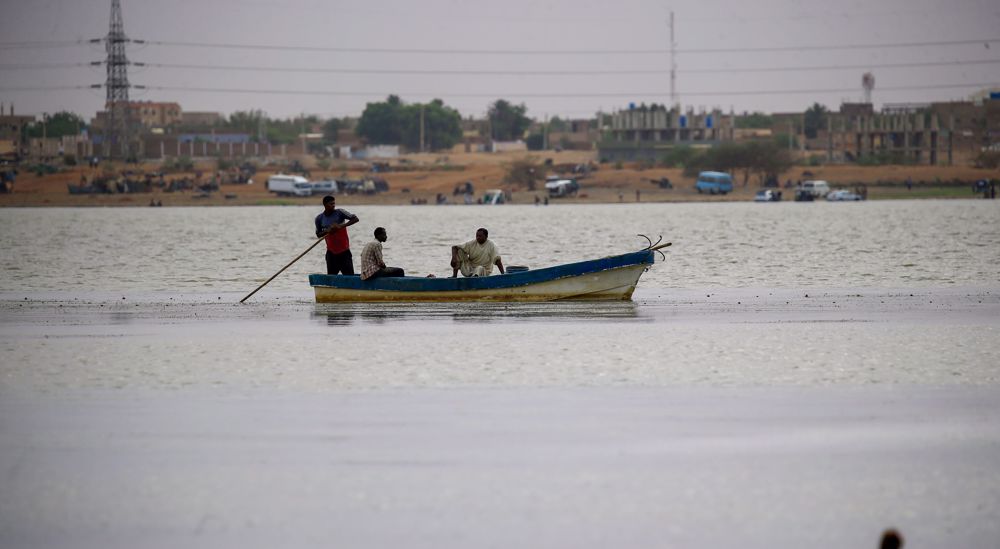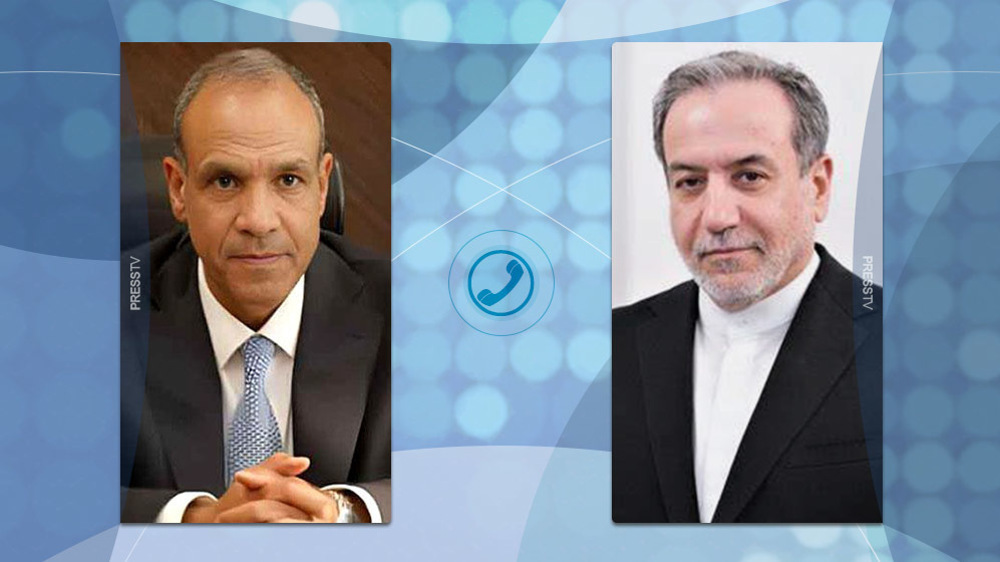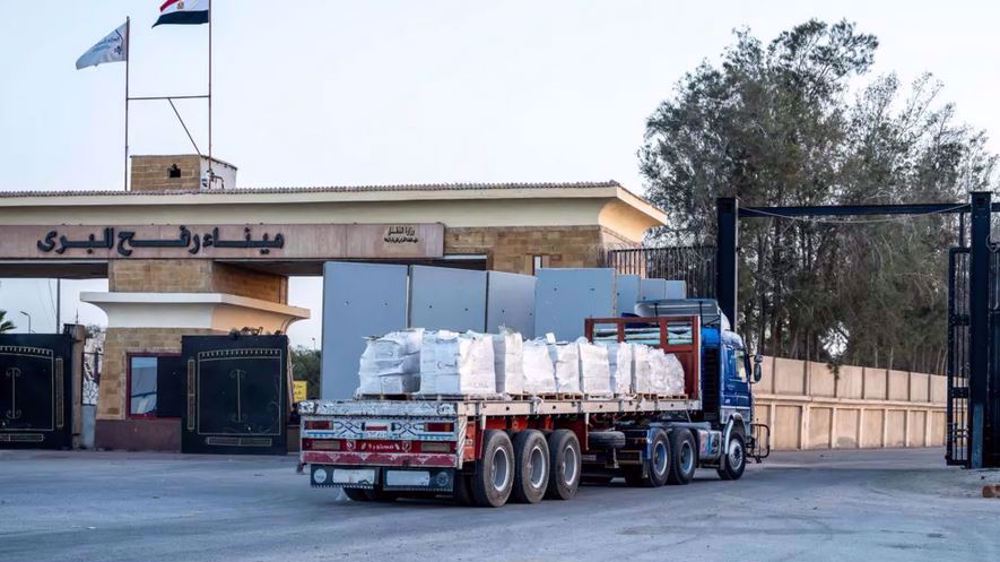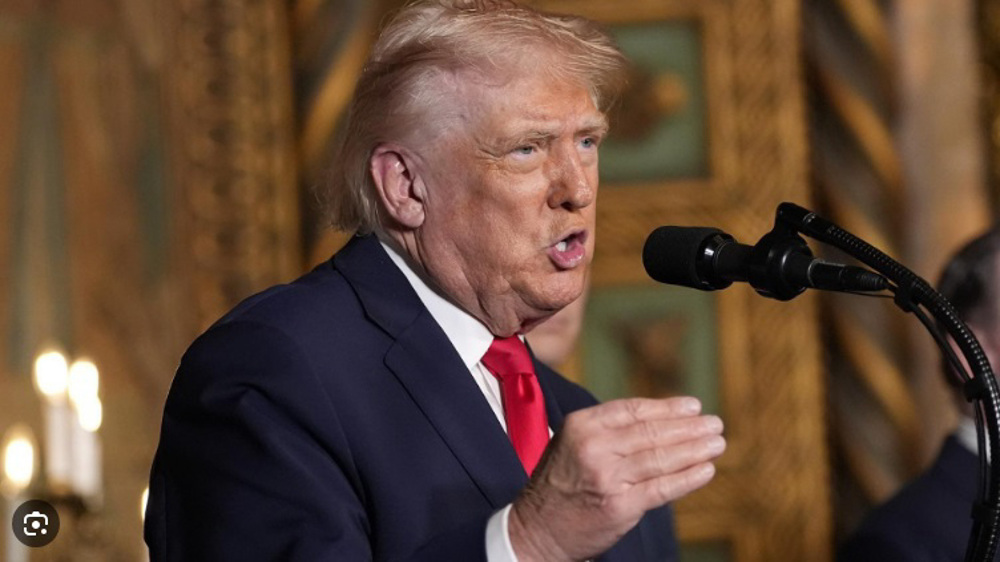Egypt approaches UNSC to mediate in landlocked water dispute with Ethiopia
Egypt has put in a petition with the United Nations Security Council to intervene in a longstanding dispute with Ethiopia over its gigantic Nile dam project, which Cairo fears would cut its vital water share.
Tensions have been running high amid lack of a consensus on the filling and operation of the Grand Ethiopian Renaissance Dam after multiple rounds of talks over the years between Egypt, Ethiopia and Sudan.
Last week, Egypt announced that negotiations with Ethiopia over the Renaissance Dam ended, since Addis Ababa had been “intransigent,” rejecting all proposed options and solutions, according to a statement by the Egyptian Minister of Water Resources and Irrigation Mohamed Abdel Aty.
It said the three-way talks have hit an impasse due to Ethiopia's "non-positive stances" and its "insistence to proceed with filling the dam unilaterally."
The Nile, which provides nearly 97 percent of Egypt's freshwater needs, is a lifeline supply of both water and electricity to the 10 countries it traverses.
Addis Ababa already had plans to start filling the dam next month, regardless of whether a deal was reached.
Ethiopia hopes to begin filling the dam during the rainy season, which will start next month, allowing operations for the Dam to start in 2021. The Ethiopian government refutes Egyptian claims that the dam will have a detrimental effect on the downstream water flow into Sudan and Egypt.
According to the Ethiopians, the dam will supply electricity for its citizens, boost its development and generate foreign exchange through the sales of the electricity to its neighbors.
Egypt and Sudan are currently abiding by a 1959 agreement which allocates 55 billion of the total 84 billion cubic metres of water to Egypt and 18 billion to Sudan. The agreement gives the two countries power of veto over any upstream development. Ethiopia was never party to that agreement and protracted negotiations between the ten countries that share the Nile water. The negotiations broke down in 2010 when Egypt and Sudan walked out of the Entebbe Agreement. Egypt insists that those water levels have to be maintained.
Egypt has urged the UN Security Council "to intervene to emphasize the importance that three countries ... continue negotiations in good faith," the Egyptian foreign ministry said in a statement.
It has been suggested that Sudan’s insistence on maintaining a neutral stance in the negotiations, despite the clear benefits the damn would bring to Sudan, appears to be hindering rather than assisting the prospect of finding a resolution to the long running dispute. Khartoom is walking on thin ice in a bid to avoid offending Egypt or alienating Ethiopia.
Estimates suggest that, should Ethiopia fill the dam over a period of ten years, water flow in the Nile could be reduced by 14 percent. However, experts hold that a speedier five-year target to fill the dam would result in up to a 50 percent loss resulting in Egyptian arable farming land drying up as a result of desertification.
Ethiopia started work on the dam in 2011, which is rated at 6.45 gigawatts, and will be the largest hydroelectric power plant in Africa when completed, as well as the seventh largest in the world. As of October 2019, the work stood at approximately 70% completion.
Participation shrinks at Israeli arms expo in wake of Gaza genocide: Report
Venezuela calls on UN to pressure US for Maduro’s immediate release
Hamas: Israel seeks to break Palestinian abductees’ will through abuse
Former UK ambassador released on bail after arrest in Epstein-linked probe
Hamas condemns Israel’s arson attack on mosque in West Bank, calls for mobilization
Trump's top general warns of Iran aggression risks: reports
VIDEO | US ambassador’s remarks on Israel’s expansion spark outrage
VIDEO | ‘Protect the Right to Protest’ rally held outside London court












 This makes it easy to access the Press TV website
This makes it easy to access the Press TV website